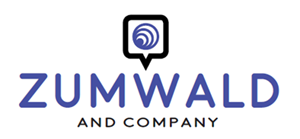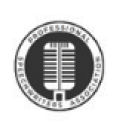Answer these 3 questions to get better as a speaker

People who want to get better as a speaker often face common challenges as they strive to go from good to great.
Do you identify with these three challenges shared by my colleague and friend Barbara?
Are you ready to do something about them?
A few days ago, a longtime colleague and friend I’d coached several years ago, Barbara, called me with a good news/bad news story.
The good news: She’d recently been promoted!
And she was breaking new ground in a brand-new organization.
The bad news (in her own words):
“I’m now being asked to deliver many more presentations much more often about the nature and growth of our organization.
“I feel like my delivery is OK.
“But I know I could do so much better.
“What do you suggest?”
It’s a question I seem to be getting a lot more frequently these days.
So I began by asking Barbara a few questions:

- What is the purpose of your talk?
- Who is your audience, exactly?
- What do they expect to hear from you?
- How does your audience respond when you present?
- What do you want your audience to do after your presentation is over?
- Are you getting the results you want?
- How do you feel about your presentation itself?
- Are you excited to deliver your material?
- How do you rehearse?
Barbara shared her thoughts and recent experiences as a speaker.
She seemed a little sheepish. And despondent.
I listened.
Then asked a few more questions.
(“This feels a little like therapy!” Barbara said with a smile.)
By the end of our conversation, three issues had clearly emerged that Barbara needed to think about — and work on — to get better as a speaker.
Three real problems to addressed
1 — What Barbara told me: “I feel like I need to be more engaging. Last week while I was speaking, I saw people on their phones.”

The real problem to be addressed:
How do you capture and keep your audience’s attention?
2 — What Barbara told me: “Our organization has a lot going on. So it’s hard to boil things down. I don’t want to leave anything out.”
The real problem to be addressed:
How do you simplify the complex and make people care?
3 — What Barbara told me: “I feel like my presentation is ‘fine.’ Telling stories definitely helps. But as a speaker, I wish I were more like [fill in the blank] because [he/she] is so compelling.”
The real problem to be addressed:
How do you stop comparing yourself to others, and instead be authentically yourself, when you speak?
Let’s tackle one at a time these three real problems to be addressed for people like Barbara who want to get better as a speaker.
# # #

Let’s start with those people in the audience who are on their phones.
Perhaps these people are on their phones because they feel like they’ve heard Barbara’s message — or some version of it — before.
Perhaps there’s nothing new here that’s being said — nothing to challenge what people have always thought about this organization or this topic.
(Think “rerun.”)
As a result, these people tune out — and tune into their phones.
To get better as a speaker, the question that Barbara must answer is this:
“If you want to capture and keep your audience’s attention, what can you say that is DIFFERENT from anything others have already said?”
# # #
Next, let’s talk about the complexity of the organization Barbara is speaking about.
Truth is: I’ve never met a spokesperson for any organization who said their organization was one-dimensional: simple and easy to understand.

Let’s be honest: Every organization has multiple layers, facets, nuances, back stories, programs, services, features and benefits.
Every organization is plagued with complexity at some level.
To get better as a speaker, the question that Barbara must answer is this:
“If you want to simplify the complex and make people care, what is the SINGLE COMMON THREAD you can weave through everything you present?”
# # #
Now let’s tackle that issue of comparing yourself to another speaker.
While it’s good to learn from others while striving to improve as a speaker, it’s not so good to aspire to be exactly like another speaker.
(If you compare, you despair.)
After all, different speakers have different gifts and different styles — different forms of self-expression.
As a speaker, you too have your own unique gifts, style and form of self-expression.
To get better as a speaker, the question that Barbara must answer is this:
“If you want to stop comparing yourself to others, and instead be authentically yourself, what are your STRENGTHS as a speaker that you can identify, celebrate and build upon — before you tackle the trouble spots?”

Next steps
These are the questions that Barbara is thinking about now — and that we will revisit together — when she returns from vacation next week.
In the meantime, if you are facing the same struggles as Barbara, and you want to get better as a speaker, it’s good to ask — and then answer — these three questions:
1 — If you need to capture and keep your audience’s attention:
“What can you say that is DIFFERENT from anything others have said?”
2 — If you need to simplify the complex and make people care:
“What is the SINGLE COMMON THREAD you can weave through everything you present?”
3 — If you need to stop comparing yourself to others and instead be authentically yourself:
“What are your STRENGTHS as a speaker that you can identify, celebrate and build upon — before you tackle the trouble spots?”

















